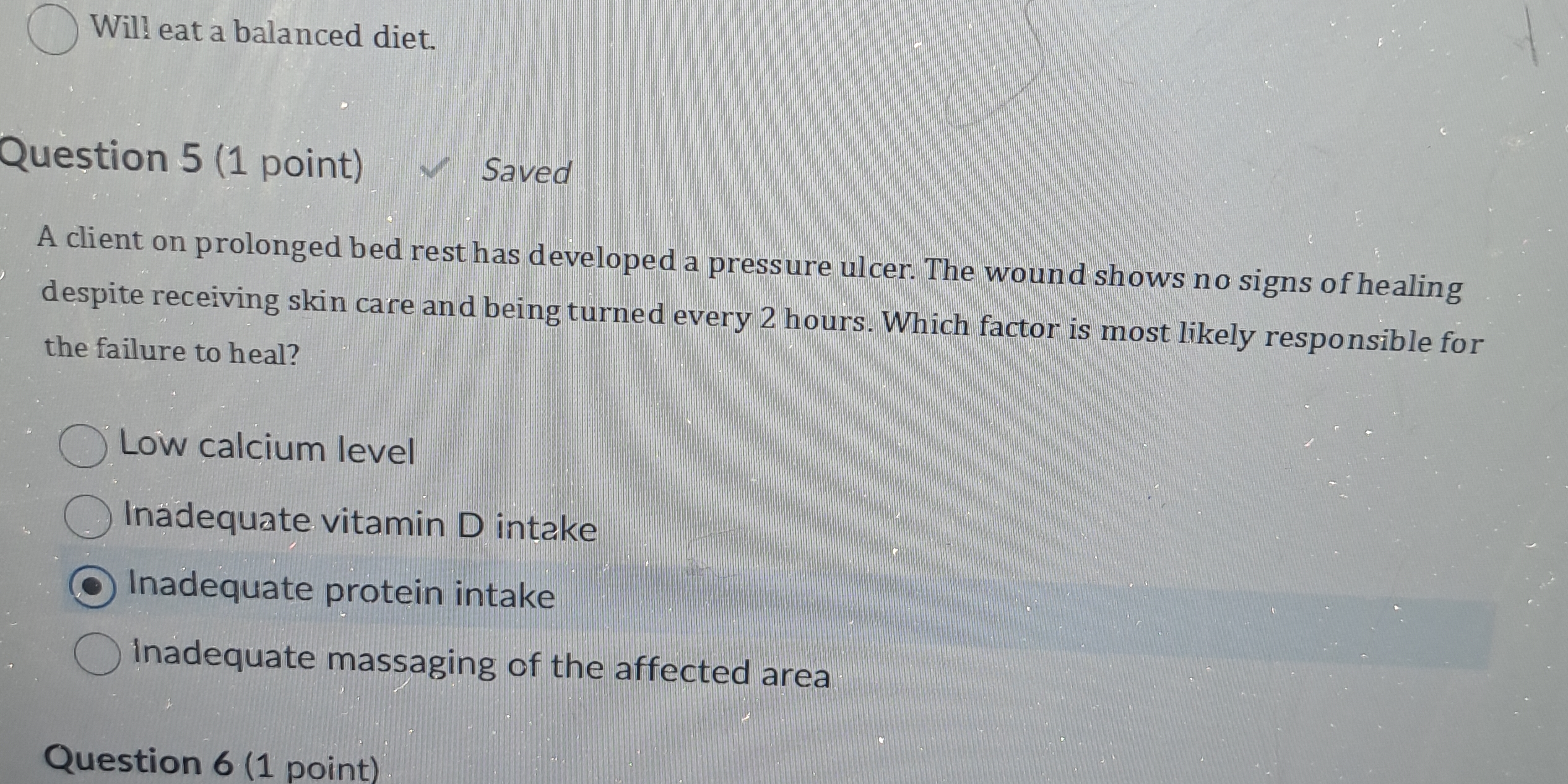A client on prolonged bed rest has developed a pressure ulcer. The wound shows no signs of healing despite receiving skin care and being turned every 2 hours. Which factor is most... A client on prolonged bed rest has developed a pressure ulcer. The wound shows no signs of healing despite receiving skin care and being turned every 2 hours. Which factor is most likely responsible for the failure to heal?

Understand the Problem
The question describes a scenario where a patient on prolonged bed rest has developed a pressure ulcer that is not healing despite regular skin care. It asks to identify the most likely factor responsible for the failure of the ulcer to heal, given several possible options related to nutritional deficiencies and care practices.
Answer
Inadequate protein intake is the most likely factor.
The most likely factor responsible for the failure to heal in a pressure ulcer, despite skin care and regular turning, is inadequate protein intake.
Answer for screen readers
The most likely factor responsible for the failure to heal in a pressure ulcer, despite skin care and regular turning, is inadequate protein intake.
More Information
Protein is crucial for tissue repair and wound healing. A deficiency can significantly impede the healing process of pressure ulcers.
Tips
While other factors like vitamin D and calcium are important for overall health, protein plays a direct role in wound repair. Prioritize addressing protein intake when a pressure ulcer isn't healing as expected.
Sources
AI-generated content may contain errors. Please verify critical information